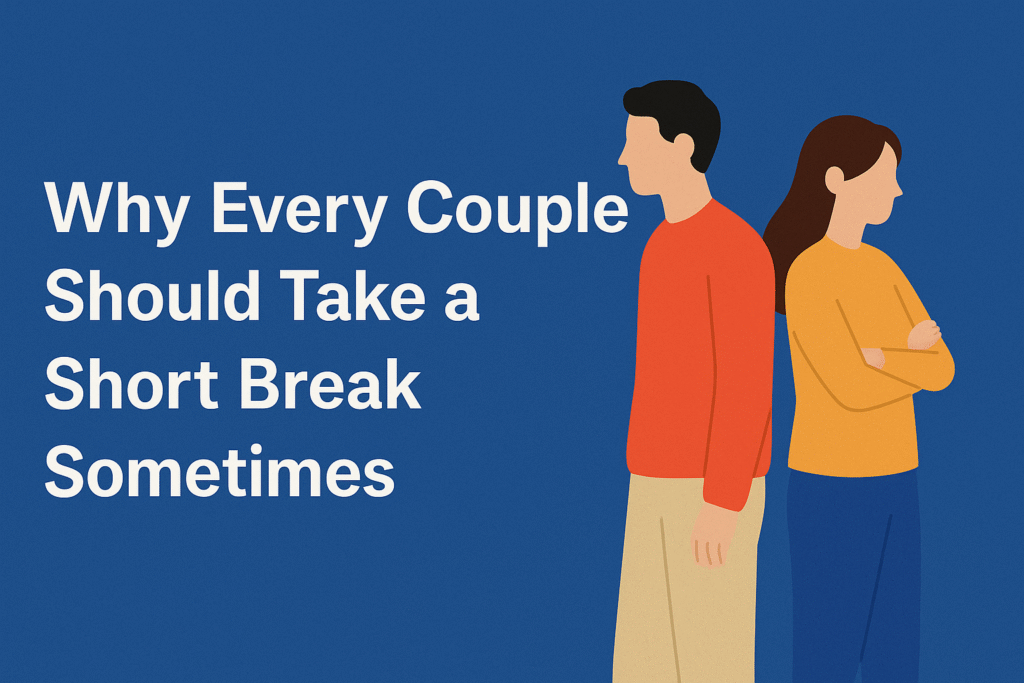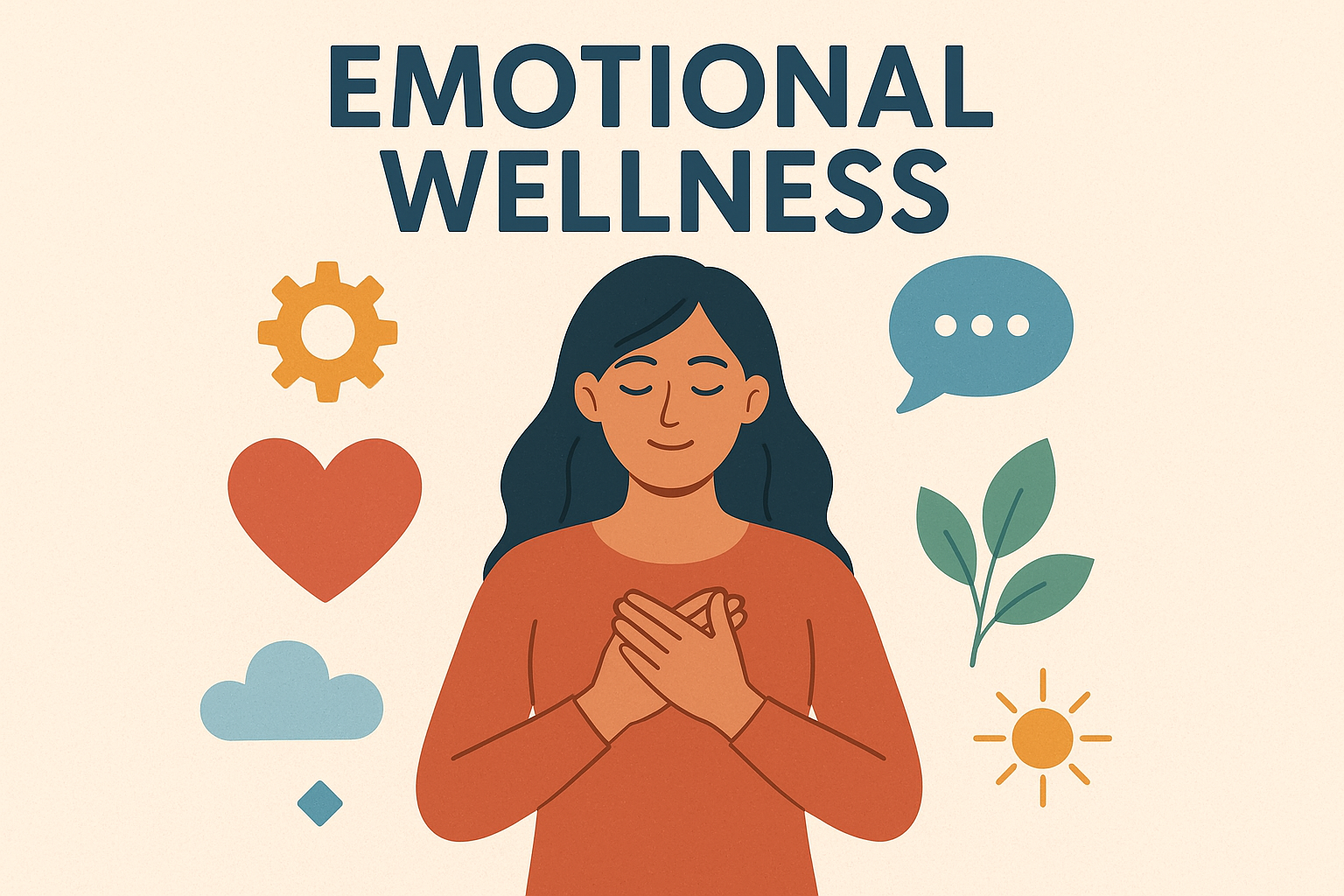In today’s fast-paced world, relationships often run on autopilot. Between work, family, finances, and endless responsibilities, even the most loving couples can start to feel emotionally drained or disconnected. That’s why taking a short break — a pause to reflect, recharge, and reconnect — can sometimes be the healthiest decision for both partners.
Contrary to popular belief, a short break doesn’t mean the end of a relationship. When approached thoughtfully, it can become a powerful way to strengthen understanding, improve emotional balance, and bring back the excitement that may have faded with routine.
1. A Short Break Offers Perspective
When you’re constantly together, it’s easy to get caught in daily patterns — small disagreements, silent expectations, or habits that slowly dull your bond. A brief separation allows both partners to gain clarity and perspective.
Distance helps you see the relationship more objectively. You may realize which issues truly matter and which were fueled by stress or fatigue. This breathing room allows emotions to settle, giving you the space to think calmly and appreciate what you have instead of focusing on frustrations.
2. It Helps Heal Emotional Overload
Arguments or unspoken tension can build emotional walls. Sometimes, continuing to talk when both are upset leads to more hurt than healing. A short break provides emotional reset time.
Taking a few days apart gives each person the chance to process emotions independently. When you reconnect, you’ll likely approach conversations with more empathy and less defensiveness. It’s not avoidance — it’s an intentional step toward better communication and understanding.
3. You Rediscover Individual Identity
In long-term relationships, partners often lose touch with their personal identity. “We” gradually replaces “I,” and individual goals, hobbies, and passions may take a back seat. A short break helps you reconnect with yourself.
Use this time to engage in what you love — read, travel, spend time with friends, or simply relax. The more fulfilled you are individually, the more value you bring into the relationship. When two strong, independent people choose to be together, the bond becomes healthier and more balanced.
4. Distance Rekindles Appreciation
It’s human nature to take comfort — and sometimes, people — for granted. Seeing your partner daily can make their presence feel routine. But when you step away for a while, even small things you once overlooked — their smile, kindness, or effort — start to stand out again.
A short break reignites gratitude and appreciation. You begin to miss not just the person, but the energy and warmth they bring to your life. Absence truly can make the heart grow fonder when the connection is genuine.
5. It Prevents Relationship Burnout
Every relationship has emotional highs and lows. When stress, work, or constant arguments pile up, burnout can creep in quietly. Taking time apart before reaching that stage allows both partners to rest and reset.
Just as we take breaks from work to regain focus, relationships benefit from short emotional vacations. It doesn’t mean detachment — it’s maintenance. Healthy pauses help preserve long-term harmony.
6. How to Take a Short Break the Right Way
A break only works if handled maturely. Here’s how to make it constructive instead of confusing:
- Discuss the reason clearly. Be honest about why you need space — not to punish, but to refresh.
- Set a time frame. Whether it’s a few days or a week, agree on when to reconnect. Open-ended breaks create uncertainty.
- Define boundaries. Decide whether you’ll stay in touch or take complete silence. Clear rules prevent misunderstandings.
- Focus on reflection, not distraction. Use the time to think about your needs, goals, and emotions — not to escape them.
- Reunite with purpose. When the break ends, discuss what you’ve learned and how you both can move forward positively.
When done with respect and intention, a short break can become a turning point that leads to greater mutual respect and renewed affection.
7. Signs a Break Might Be Needed
A short pause can help if you notice these patterns:
- Frequent arguments over small issues
- Feeling emotionally exhausted or unheard
- Losing personal motivation or identity
- Growing resentment without clear reasons
- Lack of excitement or physical affection
Recognizing these signs early and taking action — rather than waiting for things to worsen — can protect the relationship from unnecessary damage.
8. When a Break Isn’t the Solution
Not every relationship issue needs distance. If one partner uses a break to avoid responsibility or manipulate emotions, it can do more harm than good. A break should never be used to punish, test loyalty, or escape accountability. It should be mutual, respectful, and focused on self-growth and healing.
If the relationship repeatedly depends on breaks to function, deeper issues may require open dialogue or professional counseling.
Final Thoughts
Taking a short break doesn’t mean falling out of love — it means choosing growth over stagnation. It allows partners to pause, breathe, and return stronger, more self-aware, and more appreciative of each other.
Every couple faces challenges, but those who understand when and how to take space often build the most enduring connections. A healthy relationship isn’t one without pauses — it’s one that knows how to use them wisely.



